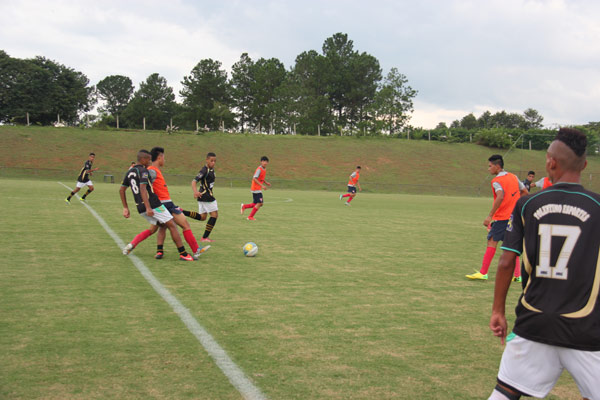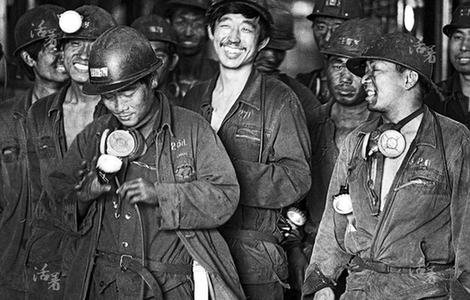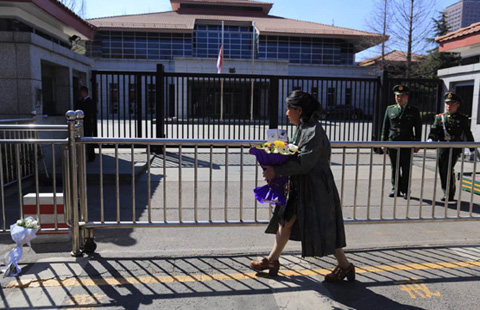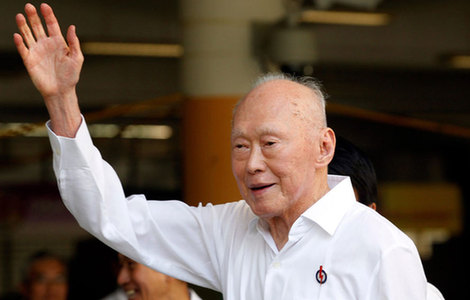China soccer learns from 'Soccer Kingdom'
Updated: 2015-03-23 03:50
By JI YE in Rio de Janeiro for China Daily(China Daily Latin America)
|
||||||||
 |
|
Young players from China’s Shandong Luneng football club play a match against Brazil’s Portuquesa in Sao Paulo on March 7. These Chinese soccer hopefuls were sent by Shandong Luneng football club to the distant "Soccer Kingdom" to open their learning journey with the masters of the beautiful game. Provided to China Daily |
China has seen its economy take off and its national strength grow. Now it wants to do something about improving its status in the world of the "Beautiful Game" — soccer.
With the men's national team lingering around 80th in world rankings and the women's side struggling to recover past glory, China is determined to give the sport a make-over, unveiling an overall reform plan this week.
Meanwhile, Brazil, known as the "Soccer Kingdom", is working on its own reform plan to avoid a repeat of the humiliation of the five-time world champion's 7-1 defeat to Germany at last year's World Cup. The plan is to put more emphasis on professional leagues and developing young talent.
Twenty-one years after turning professional, Chinese soccer has shown no noticeable improvement, having been plagued with corruption and match-fixing in the league.
The Chinese men's team, now ranked 83rd, has qualified only once for the World Cup finals, while the women's team is facing an uphill battle to recapture the glory of their 1999 World Cup runner-up status, failing to even qualify for the 2011 event.
In the wake of a wide crackdown on corruption and match-fixing, Chinese soccer has been clawing its way back, witnessing league champion Guangzhou Evergrande clinch China's first-ever Asian Champions League title in 2013 and the men's national team reach the Asian Cup quarter-finals early this year.
The overall soccer plan was passed by China's central reform group chaired by President Xi Jinping, who is an avid soccer fan.
China's soccer reform package is different from Brazil's.
The world's most popular game is set to be added into the compulsory curriculum in elementary and middle schools across China in a bid to foster interest and expand the soccer pool.
In Brazil, the love of soccer is innate.
"Usually the first gift given to a boy by his father is a soccer ball. I think that explains how soccer culture is deeply rooted in Brazil," said Ricardo Cappelli, an official from the Brazilian Sports Ministry, which is responsible for school sports.
Although soccer is just one of several sports offered in physical education, Brazilian children prefer it over any other sport, which might explain why Brazil has always been a breeding ground for soccer stars.
The Brazilian football federation announced after the World Cup that it would invest $100 million to build 15 training centers to develop the nation's elite youngsters. At the same time, the federation also unveiled plans for an inaugural under-20 national league as part of an overhaul of the country's youth program.
In China, drawing more children into playing soccer will be a priority. Soccer leagues in elementary, middle and high schools, as well as universities, are mentioned in the plan. The plan also encourages clubs and enterprises to fund young athletes' training abroad.
Agnello Goncalves, general technical coordinator of Brazil's club Corinthians, warned that in youth soccer, a regular pattern of development should be followed to achieve long-term success.
Unlike Brazil, which has a deep-rooted soccer culture, China still needs to "improve the environment and atmosphere" of the sport, said Goncalves.
For example, the names and locations of Chinese clubs have changed from time to time due to a change in sponsors.
"Changing the name and place of clubs is unimaginable," said Alexandre Ferreira of the Corinthians' marketing department. "Even though nowadays Brazil's economy is in a downturn and the sponsor of Brazilian clubs changes frequently, the name of the club would never change. Without the consistent support of local fans, a team cannot be rooted in one place."
Fernando Segura Trejo, a soccer sociologist with the Getulio Vargas Fondation in Rio de Janeiro, said that compared to the Brazilian and European soccer worlds, Chinese soccer is a new market.
"Most Brazilian clubs were established between the end of 19th century and the early 20th century. At that time there was no sponsor concept. Most of clubs were named after the place's name or its related history. But in China the sponsors still have a huge influence on the clubs' names," he said.

 Stairway to heaven
Stairway to heaven
 Dramatic changes for Chinese miners in the last 30 years
Dramatic changes for Chinese miners in the last 30 years
 Antitrust policy 'treats all fairly'
Antitrust policy 'treats all fairly'
 Top 10 young Chinese entrepreneurs defining the future
Top 10 young Chinese entrepreneurs defining the future
 Singapore Embassy in Beijing mourns Lee Kuan Yew
Singapore Embassy in Beijing mourns Lee Kuan Yew
 China joins legendary flower show
China joins legendary flower show
 Monks perform tea-picking ritual in Hangzhou
Monks perform tea-picking ritual in Hangzhou
 Singapore founding father Lee Kuan Yew
Singapore founding father Lee Kuan Yew
Most Viewed
Editor's Picks

|

|

|

|

|

|
Today's Top News
Kites of Asia soar at Smithsonian
Beijing artist gives back to opera
Lee remembered as 'old friend' of Chinese people
Texas Republican Cruz announces presidential bid
Fictional TV presidents more popular than Obama - poll
Funding of China-backed bank will be open to other countries
Six Western economies apply to join AIIB
US urged to honor pledge
US Weekly

|

|







